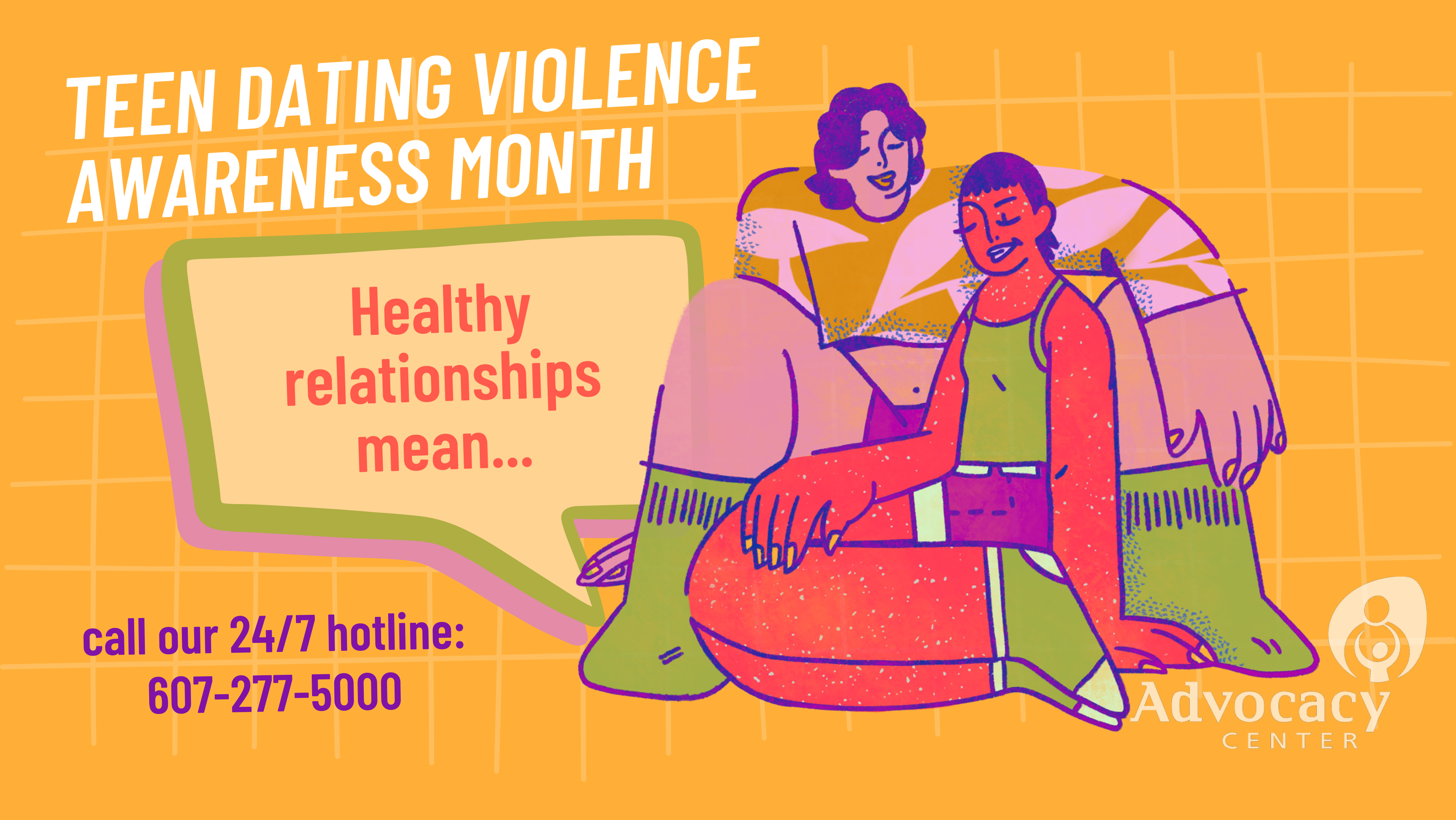by Katrina C., Youth Educator
TDVAM is a national, ongoing effort to draw attention to (and ultimately prevent) harmful relationship realities experienced by youth. Just because it’s a teen relationship does not mean it’s any less impactful. In fact, our formative dating experiences can greatly influence our subsequent relationships. The behaviors that become familiar or normalized initially for us have reverberating effects. Ideally those behaviors are centered around mutual respect and a dedication to each other’s best interests; however, we know that this is not the case within abusive relationships.
Controlling behavior is a hallmark sign of an unhealthy and/or abusive relationship. Teens who are controlled, belittled, harassed, or harmed by their dating partner may need support to identify these behaviors, and to safely exit, or exist in, the relationship – depending on where they’re at. Being empathetic to teens’ perspectives, which can be complicated by social dynamics and other factors, is key, so as to avoid unintentionally blaming the teen for the experience they’re having. For support, consider referencing the national resource Love is Respect, which has a host of informative articles, relationship quizzes, as well as 24/7 support for youth and young adults navigating harmful dating relationships.
To counter the harsh realities many teens are vulnerable to experiencing – or have experienced – consider using imagination as a violence prevention effort.
Imagining what is possible and desirable for oneself in a relationship can be used as a navigational tool moving forward. To assist in this imagination process, it’s important to name several healthy relationship behaviors and values (see below and/or check out One Love’s list of ten healthy relationship behaviors). Talking about these things can help demystify what a healthy relationship actually looks like. If teens have not had models of healthy relationships around them growing up, nor represented in the media they consume, it can be understandably challenging to navigate this new terrain of interpersonal intimacy with any sense of direction. For teens who have already experienced dating violence, considering their ideals moving forward is all the more important, and can assist in (re)establishing a sense of agency that may have been damaged by a controlling relationship.
We encourage you to have conversations about healthy relationship behaviors with the youth in your life. To spark these talks, you may find the list below helpful.
Healthy relationships mean…
- feeling safe
- mutual respect
- equality
- open communication
- listening
- honoring boundaries
- moving at a comfy pace
- trusting
- being curious
- resolving conflicts
- encouraging growth
- supporting each other
- having fun
- checking in
- being vulnerable
- allowing space
- sharing yourself
If you are feeling unsafe in your relationship – or know a youth who may be – please know that help is available. You are welcome to call our 24/7 hotline at 607-277-5000.
